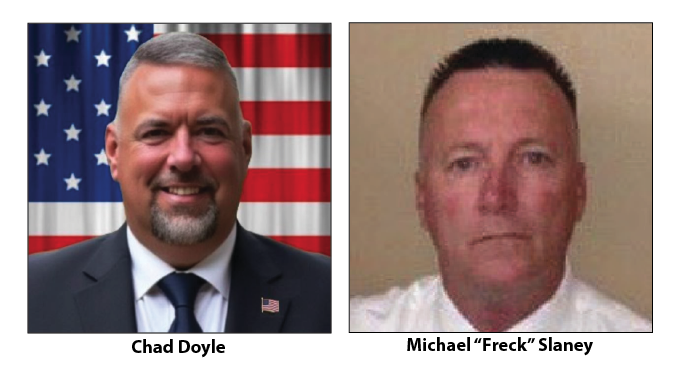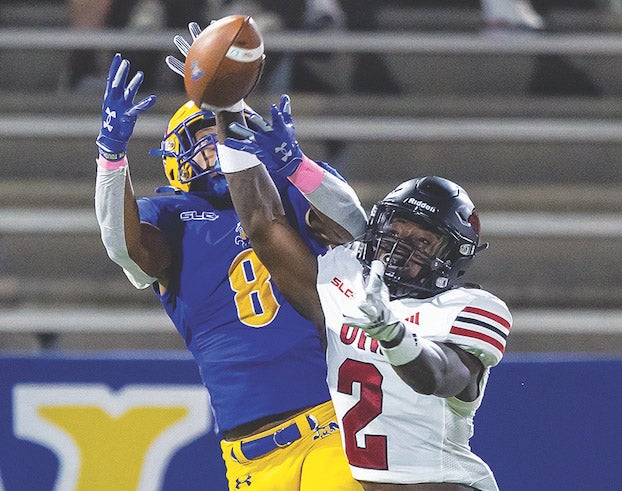Grand jury declines to indict Winey
Published 9:19 am Friday, January 9, 2015
A grand jury in state district court returned indictments in two separate murder cases, while declining to indict a former LSU football player in the shooting of another former Tigers athlete.
The grand jury indicted four people in a September shooting at a house at 2706 Allen St. in which Nathaniel Raynaud was killed. Although the house — the site of two shootings in three months — was targeted as a drug house, Raynaud was in the “wrong place at the wrong time,” Lake Charles Police Chief Don Dixon said after the shooting.
Trevis Syntel Barber, 32, Ali Lee Barconey, 31, William Lee Carter, 21, and Bryant Anthony Payne, 29, were all indicted on charges of second-degree murder. Barconey’s wife, Ineatta Stevens Arrington, 39, was indicted on a charge of obstruction of justice.
Trending
Mario Jamal Viltz, 35, was indicted on a charge of second-degree murder in the October death of a 25-year-old woman found seriously injured in an Anita Drive home. She died a day later.
The grand jury declined to indict Brandon Winey, 36, on a charge of attempted second-degree murder in the April 11 shooting of Tahj Jones, 25. Both men are former LSU football players. Winey, a Washington-Marion graduate, played football at LSU from 1997 to 2000 before a short stint in the NFL. Jones, a Sulphur High graduate, played football at LSU from 2009 through 2013.
Winey shot Jones in the abdomen during a scuffle at Town and Country Apartments on Beglis Parkway in April. Winey was arrested after the shooting.
“This was obviously a much more complex case than originally reported,” said Walt Sanchez, Winey’s attorney. “Law enforcement and the District Attorney’s Office investigated this for months and presented a complete picture of what happened that night to the grand jury, and they made the absolutely right decision.”
The defense said Jones showed up uninvited to the apartment after being told not to go to the complex, District Attorney John DeRosier said. Jones also had a history of fighting with brass knuckles, and Winey felt that he had been hit with something hard, although he did not see any brass knuckles, DeRosier said. Winey said he acted in self-defense, DeRosier said.
“The grand jury heard all the evidence and determined that a no true bill was the most appropriate,” DeRosier said. “That’s why we choose grand juries. We’ve got 12 people who collectively make the decision as to whether or not we should prosecute, whether we have probable cause to prosecute. Apparently they felt there was not since they returned a no true bill.”
Trending
(MGNonline)





